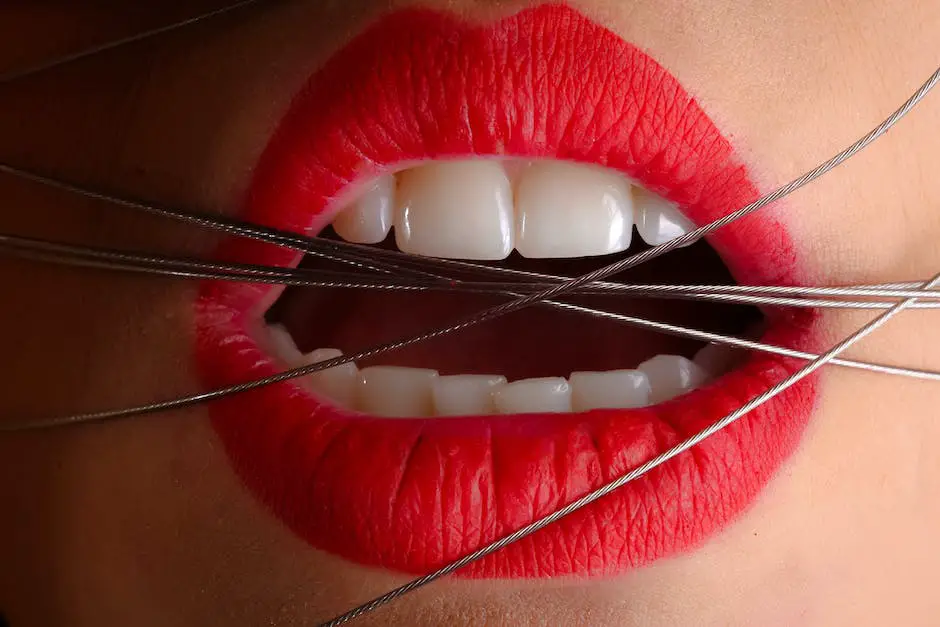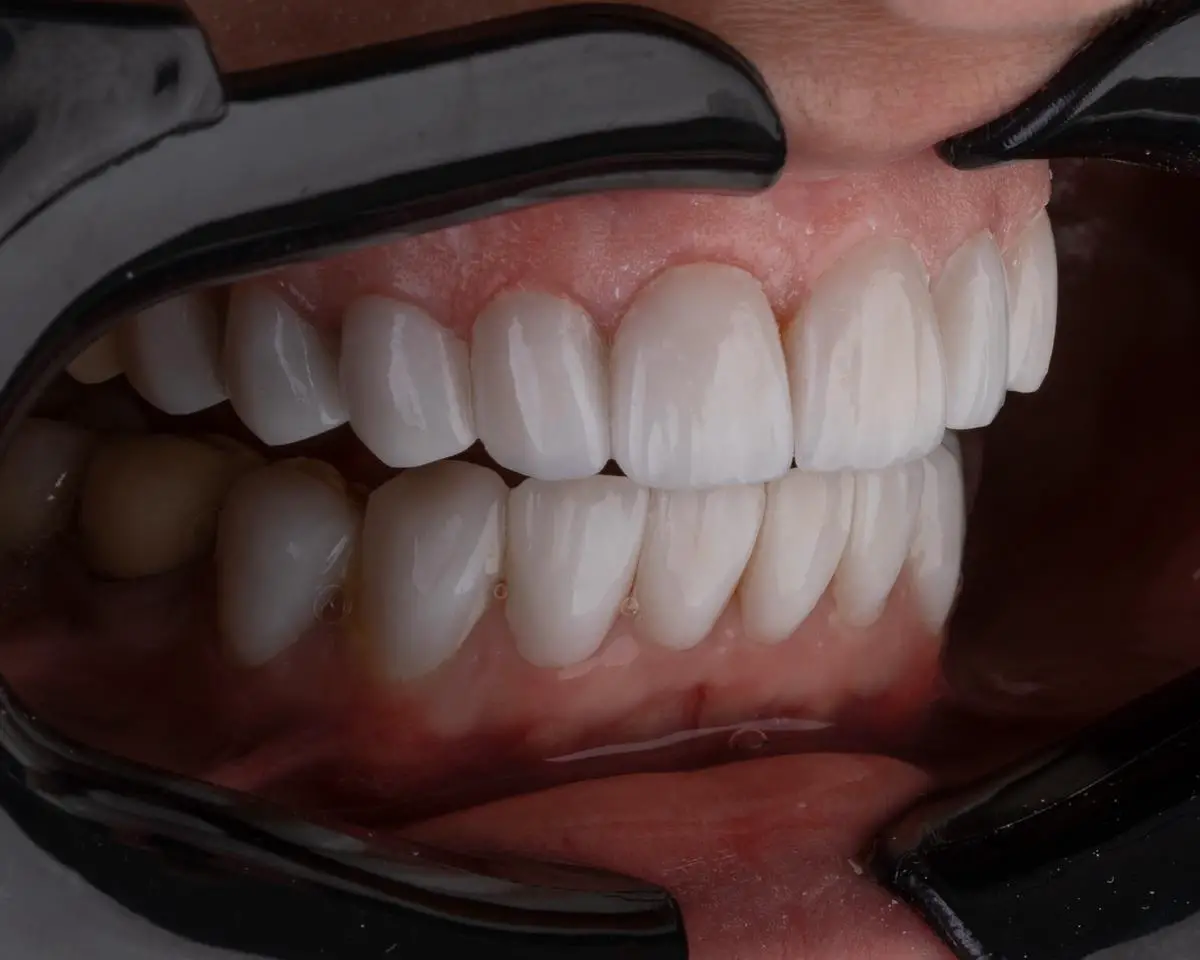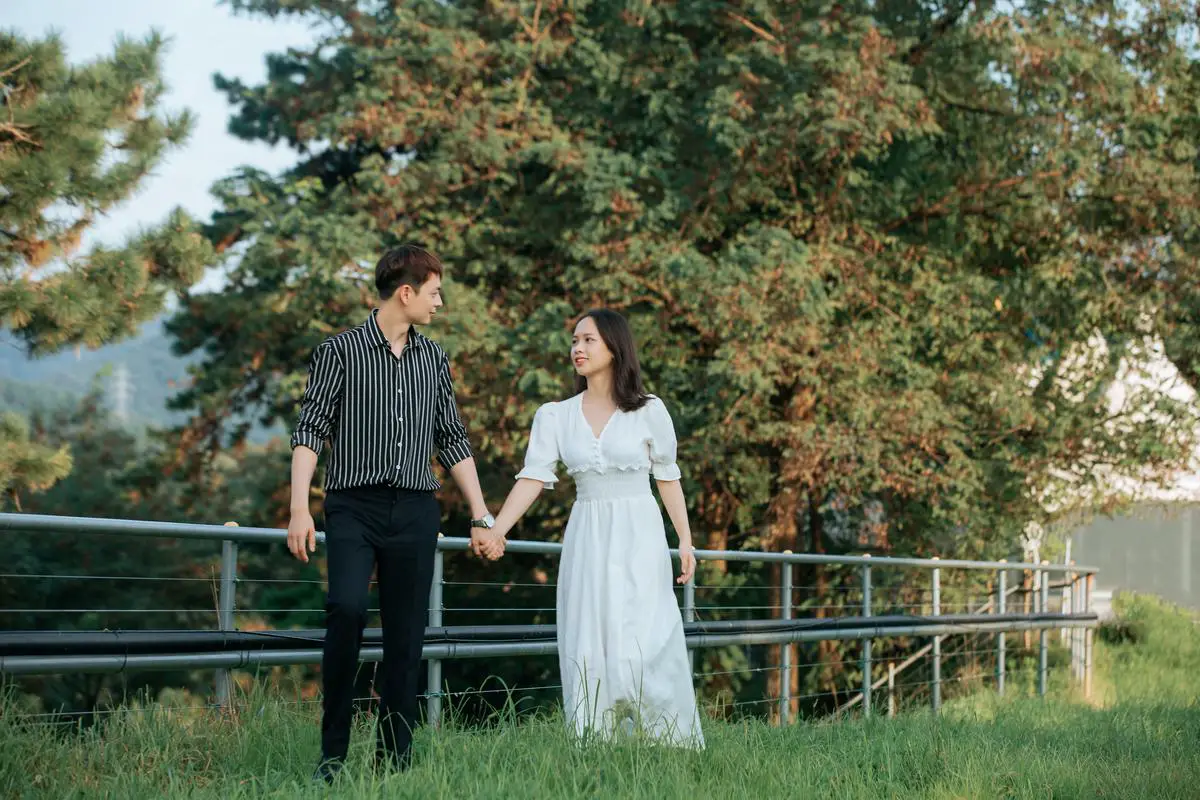In an ever-youthful and beauty-obsessed society, the fear of aging – scientifically known as Gerascophobia – has become increasingly prevalent. As we age, we are forced to confront our mortality, and societal stereotypes and stigmas about the process can often escalate this fear, affecting our mental health and overall lifestyle. On a parallel streak, dreams of decaying teeth, often associated with stress, anxiety, and fear, surface frequently in our unconscious minds. Many experts have drawn correlations between these two phenomena. This discourse delves into understanding both these conditions, their triggers, symptoms, interpretations, and most importantly, explores their possible connection.
Understanding the Fear of Aging
Understanding Gerascophobia: The Fear of Aging
Gerascophobia, derived from the Greek ‘geras’ meaning ‘old age’, is an anxiety disorder characterized by a profound fear of getting older. This fear encompasses a range of anxieties, from the deterioration of physical health and appearance to the loss of autonomy and the fear of death.
Individuals grappling with this fear often experience intense emotions and anxiety when facing reminders of aging, such as birthdays or witnessing physical changes in their or others’ appearance. Some common triggers might include difficulties with physical tasks previously easy to perform, an increasing number of health-related problems, or the passing of peers or family members.
Signs and Symptoms of Gerascophobia
People with Gerascophobia often display certain signs and symptoms that are noticeable to both themselves and others around them. These might include avoidance behaviors such as refusing to celebrate birthdays, engage in activities with older individuals, or avoid mirrors for fear of seeing signs of aging. Physiological symptoms may also occur like increased heartbeat, sweating, trembling, or an overwhelming feeling of panic or dread.
Gerascophobia could adversely impact an individual’s mental health. They might suffer from depression, social anxiety, or panic disorders. Some might isolate themselves, frequently visiting the doctor, or having an excessive preoccupation with their diet and exercise routine.
Societal Stereotypes and Stigma of Aging
The stigma associated with aging largely plays a role in exacerbating the fear of aging. This can predominantly be seen in societies where youthfulness is highly prized and aging is seen as a loss of attractiveness, vitality, and productivity. This societal bias might germinate a fear of rejection or ostracization in older individuals or even in those who are gradually aging.
Understanding Teeth Decaying Dreams
Dreams about teeth falling out or decaying are fairly common and often relate to fears and anxieties about one’s appearances, particularly in terms of aging. These dreams are typically stress-related and indicate a fear of change, loss, and new phases of life.
In a broader psychological context, these dreams could be interpreted as a fear of losing control, power, or even a fear of time passing by rapidly leading to aging and subsequent decay. Some theories suggest that teeth decaying dreams may represent the anxiety about negative remarks received from others or regret about words spoken in haste.
Gerascophobia and Teeth Decaying Dreams: The Connection
In context of a fear of aging, a dream about teeth decaying could be a reflection of such fears. As teeth are often seen as a symbol of vitality and attractiveness, dreams about them decaying or falling out can symbolize fears about losing these qualities with age. Furthermore, since age also impacts oral health, these dreams could also be a worry of one’s health deteriorating with age. The societal pressure to maintain one’s youthful appearance might instigate these negative dreams, subsequently intensifying one’s fear of aging.
Understanding and Managing Gerascophobia
Whether it’s a fear to embrace due to its inevitability or something that causes excessive anxiety, Gerascophobia, or the fear of aging, can be quite debilitating. To deal with this fear, understanding and acknowledgment are key steps, followed by the realization that aging is an inevitable, natural process. If needed, professional intervention, such as Cognitive-behavioral therapy, can be sought to help modify the thought process that instigates this fear. Anti-anxiety medication might also be employed in acute cases.
A broader societal perspective needs to change towards aging. It should be recognized not merely as a physical regression but also as a phase of life marked by wisdom and maturity. It’s pivotal to foster an environment where people of all ages feel comfortable and accepted, and the process of aging is appreciated and not looked upon with distress.

The Psychology Behind Teeth Decaying Dreams
Dreams about Teeth Decaying: A Psychological Perspective
Interestingly, dreams about teeth decaying or falling out are very common and have sparked much curiosity among psychologists and psychoanalysts who have forwarded multiple interpretations. Often these dreams are seen as a reflection of individuals’ fear of aging or anxiety about their looks. These dreams symbolically represent the concern about change, transition, or fear of losing control, linking back to possible apprehensions about growing old.
Some of the most renowned psychologists, such as Carl Jung and Sigmund Freud, have substantially influenced understanding of such dreams. Freud postulated that these particular dreams could be related to sexual repression or could highlight concerns about male performance. Meanwhile, Jung imparted more emphasis on the collective unconscious and cultural significance, suggesting dreams of teeth falling out could symbolize a significant stage in a person’s spiritual growth or self-improvement journey.
Fear of Aging and Teeth Decaying Dreams
Fear of aging, also known as Gerascophobia, can trigger dreams of teeth decaying. Aging is typically associated with physical decline and fear of losing attractiveness, which can manifest in dreams about teeth decaying. Teeth, in dreams, often symbolize power and confidence, so when they decay or fall out, it may reflect an individual’s anxieties about becoming less vigorous or productive.
Similarly, not being able to chew food due to tooth decay can also symbolize fear of not being able to ‘chew on’ or process key life challenges as we age. This further cements the link between the fear of aging and dreams about teeth decaying.
Dreams, Stress, and Anxiety
Stress and anxiety, common chronopsychological facets of aging fear, play a fundamental role in shaping dreams. Several research studies affirm that teeth decaying dreams could be a reflection of heightened stress levels or overarching anxiety disorders, including general or social anxiety. Those who experience these dreams usually report feeling out of control or overwhelmed in their waking life.
Cultural and Regional Differences in Dream Interpretation
Cultural and regional variations influence dream interpretation, including teeth decaying dreams. In Japanese culture, for instance, such a dream is considered a lucky omen of impending pregnancy or extended family growth. However, in Greek culture, it might be interpreted as a sign of death or severe illness. Despite these cultural differences, the fundamental assessment remains consistent must across societies — the dreams represent the fear of loss, whether it’s beauty, power, or control, often linked to aging.
Factors Behind Dreams of Decaying Teeth
Everyone experiences dreams, some of which can be puzzling or distressing. Dreams regarding teeth decaying can be prompted by both concrete and abstract factors, often tied to an individual’s unique experiences and perceptions. In some cases, these dreams may stem from actual dental issues, while in others, they may reflect abstract fears about failure in personal or professional life. Life transitions such as starting a new job, moving to a new city, or managing major life events could also spur such dreams. However, one of the key triggers for dreams of teeth decay is the fear of aging and the unsettling sense of our inability to halt the relentless passage of time.
Much about the content of our dreams remains a mystery, but an element that frequently emerges in dreams of decaying teeth is our dread of aging and our perceived lack of control over our own mortality.

Photo by teravis_sk on Unsplash
The Connection Between Fear of Aging and Teeth Decaying Dreams
Navigating Aging Fears and Our Dream World
While our dreams often reflect our subconscious thoughts and emotions, they can also unmask deeply entrenched fears and insecurities. A significant fear that many individuals grapple with is gerascophobia, an overpowering and irrational dread of growing old or undergoing the natural aging process. This fear often encompasses the anticipated loss of physical abilities, attractiveness, autonomy, and similar worries. In juxtaposition, dreams about teeth decaying frequently symbolize feelings of insecurity, loss of control, or reluctance to let go. It’s not unusual for these dreams to trace back to underlying anxieties about aging and the inevitable changes it brings with it.
The Psychology Behind Teeth Decaying Dreams
According to Carl Jung, a renowned psychologist, dreams about teeth decay are quite common and could typically symbolize anxieties about personal appearance and how others perceive us. Teeth may stand as a symbol for attractiveness and youth; healthy teeth are usually associated with vitality. Thus, dreaming of teeth decay could indicate the fear of losing these aesthetics as one ages.
Sigmund Freud, another eminent psychologist, also posited that teeth in dreams could symbolize power and confidence. Hence, dreams about teeth decay might be a reflection of feelings of powerlessness or loss of confidence, often linked to the process of aging.
Expert Insights and Case Studies
Experts in psychology and dream studies have weighed in on this matter as well. For instance, studies conducted by Calvin S. Hall, an American psychologist known for his work in dream analysis, have shown that emotions experienced in dreams mirrored the same emotions experienced by the individual in the waking life. Hence, an older adult fearing the continuation of aging may very likely dream about teeth rotting, symbolizing the anguish of losing youth, vitality, and control.
Another study published in the International Journal of Aging and Human Development found that for older adults who regularly dream, their dreams often reflect their concerns, fears, and challenges related to aging. This attests that the fear of aging could likely manifest itself in nightmares or dreams, like those centered around teeth decay.
Societal Factors and Aging Fear
Societal factors, such as discrimination or stigmatization of aging and the elderly, can also cultivate a fear of aging. In Western societies, where youth and beauty are often prioritized and idealized, people may have negative perceptions of aging, thereby fostering conditions for aging fears. This could eventually translate into unsettling dreams, such as teeth decaying, as a reflection of these embedded societal fears.
Addressing Aging Fears and Teeth-Decaying Dreams through Therapy
One of the effective ways to handle existential fears such as the fear of aging and distressing dreams about teeth decay is therapeutic intervention. Cognitive behavioral therapy (CBT), for instance, has proven to be particularly useful. This therapy focuses on altering negative thought patterns and misconceptions about the aging process. Other types of therapeutic strategies, like exposure therapy or psychoanalysis, also work towards confronting and understanding these fears or unsettling dreams.
Additionally, maintaining robust dental health can help address the common fear of teeth decaying. Ensuring regular dental check-ups, balancing diet, and adhering to a regular brushing and flossing routine provides an overall health boost to the teeth. This, in turn, can diminish some of the apprehensions potentially contributing to disturbing dreams related to teeth decay.

Mitigating The Fear of Aging & Dealing with Teeth Decaying Dreams
Deeper Insight into the Fear of Aging and Dreams of Teeth Decay
The fear of aging, also referred to as gerascophobia, is a well-recognized fear encompassing concerns about loss of youthfulness, physical strength, and cognitive functions. Frequently, this fear is coupled with the dread of death and the uncertainty that comes with speculating about life beyond death. Dreams involving teeth decay are also common and can represent anxieties related to one’s appearance, self-perception, and fear of judgment or criticism by others. Beyond the superficial worry about physical decline, such fears and dreams may stem from the apprehension of becoming dependent or unable to carry on with accustomed daily life and activities.
Relaxation and Stress Management Techniques
Managing fear and anxiety requires a comprehensive approach, focusing on both psychology and physiology. Techniques such as deep breathing, mindfulness, yoga, and meditation are proven to have positive effects on one’s mental state by reducing stress, calming the mind, and creating a sense of inner peace. Regular exercise is also beneficial in improving mood, boosting self-confidence and can help people feel younger and more energetic.
Empowerment Strategies
Empowering yourself with the right mental and emotional tools is critical when managing fears and anxieties. This might include reframing your thought patterns through cognitive-behavioral therapies or practicing positive affirmations and visualization techniques. It’s also about embracing aging as a natural process and focusing on the benefits it brings, such as wisdom, experience, and maturity.
Mental Health Resources
Seeking help from mental health professionals and resources can be incredibly helpful. Psychotherapy, counseling, and group support are all effective ways to understand, manage, and overcome fears related to aging or profound dreams. Many support communities and resources are available online, providing advice, understanding, and assistance to those struggling with these fears.
Preventative Aging Methods
Investing in preventative aging methods is a pragmatic way to mitigate the fear of aging. This encompasses maintaining a healthy lifestyle, which includes a nutritious diet, regular exercise, adequate sleep, and routine health check-ups. The use of skincare products containing antioxidants, retinoids, and peptides can help maintain skin elasticity and reduce visible signs of aging. Also, discontinuing harmful habits like smoking and excessive alcohol consumption can go a long way in maintaining overall health.
Professional Help and Therapies
For people whose fears and anxieties are significantly impacting their quality of life, seeking professional help is often the best course of action. This may involve engaging with therapists to utilize techniques like Exposure Therapy, where one is gradually and repeatedly exposed to the object of their fear, helping them to build tolerance and control over their reactions. For teeth decay dreams, therapists could employ dream analysis or Dream Interpretation Therapy to help understand the root cause of their fears or anxieties and tackle them effectively.
The Power of Perspective
Every stage of life has its unique beauty and challenges. Embracing the present and adopting a positive outlook towards aging can transform the fear into acceptance and excitement. Dreaming of teeth decaying can be viewed as a reminder or spur to maintain good oral hygiene and an overall healthier lifestyle rather than a signal of impending doom. Remember that fear and anxiety are often tied to perspective. Changing your perspective can drastically change your emotional response and help manage fears effectively.

Coming to terms with the inevitable process of aging and comprehending the psychological significance of teeth decaying dreams can be daunting but not insurmountable. Through relaxation and stress management techniques, empowerment strategies, and using mental health resources, one can learn to navigate these fears. Despite these fears being deeply ingrained, professional help such as counseling and psychotherapy can play a significant role in their management. Moreover, adopting preventative aging methods can encourage a healthier lifestyle and greater respect for the process of growing older, heralding a more positive perspective towards the natural course of life. Instead of dreading one’s golden years, it thus becomes possible to embrace aging as another phase of self-discovery and growth.
